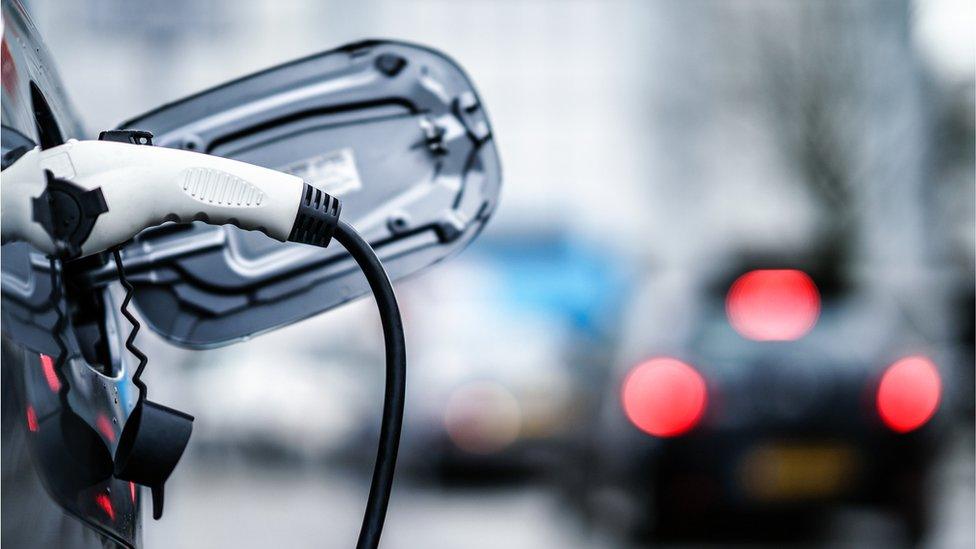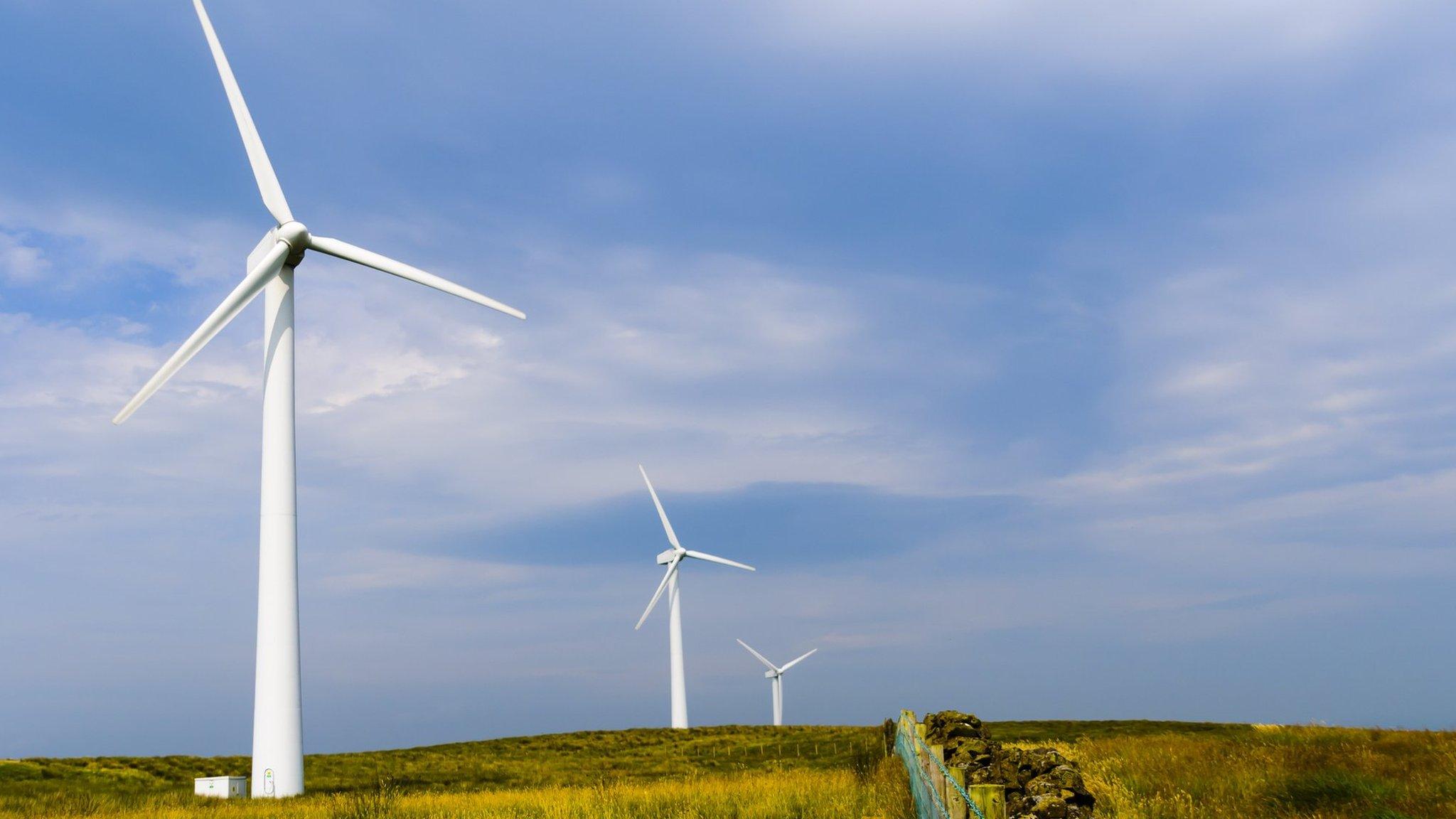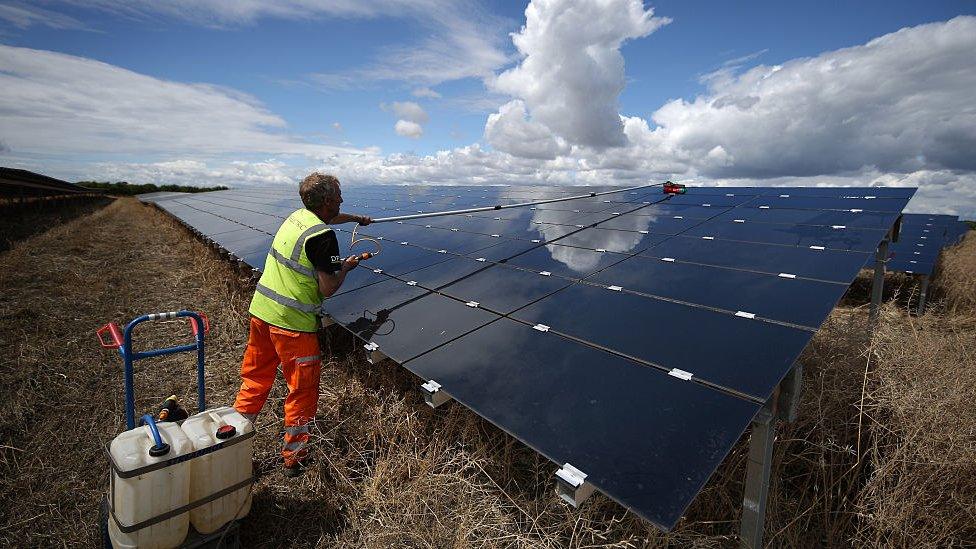Net zero carbon emissions: Public's help wanted for future policy
- Published
- comments

A government document has recommended a shift away from oil-fired central heating and a move to public transport and electric vehicles
Getting big changes right on how we generate power, travel and heat our homes is of "fundamental importance" as NI attempts to meet a government target on zero carbon emissions.
And there must be no repeat of the disastrous RHI scheme, according to a government document.
It has asked for the public's help in setting future policy.
Submitted ideas will be brought to any incoming economy minister and will feed into future schemes.
But in broad terms it will mean much less reliance on fossil fuels and much greater emphasis on renewables.
In particular it will require a shift away from oil-fired central heating for 520,000 homes and a move to public transport and electric vehicles.
Mike Brennan, Department for the Economy permanent secretary, said there would be "challenges".

There are just under 2,800 electric vehicles registered in Northern Ireland
And in a reference to the failed RHI scheme, which was meant to decarbonise heating, he said new options would have to be based on "robust, reliable and evidence-based policy making".
The ideas sent in will inform the development of a new energy strategy for Northern Ireland, which will run to 2050.
It would take account of the UK government's commitment to net zero carbon emissions by that deadline.
Northern Ireland has already exceeded a target for 40% of electricity from renewables by 2020, which was in the last energy strategy, thanks to onshore wind.
But if net zero is to be achieved, that ambition will have to be broadened to include heating, which accounts for more than half the energy consumed here every year, predominately from oil.
That could mean new regulations on how homes are heated in future and expensive retro-fitting of existing housing stock with technology like air or ground source heat pumps.
There will also have to be investment to ensure more power from renewables can be used.
At present, only 65% of the power on the grid can come from renewable sources at any one time due to complex engineering reasons.
And the support mechanism which drove an increase in power from renewables from 3% in 2005 to 45% in 2019 has now closed.
Transport accounts for a third of the energy consumed in Northern Ireland and is the second biggest emitter of greenhouse gases after agriculture.
Better public transport, cycling and walking routes and encouraging the uptake of electric vehicles are considered key.
There are just under 2,800 electric vehicles registered in Northern Ireland.
- Published5 September 2019

- Published2 November 2019

- Published25 June 2019
